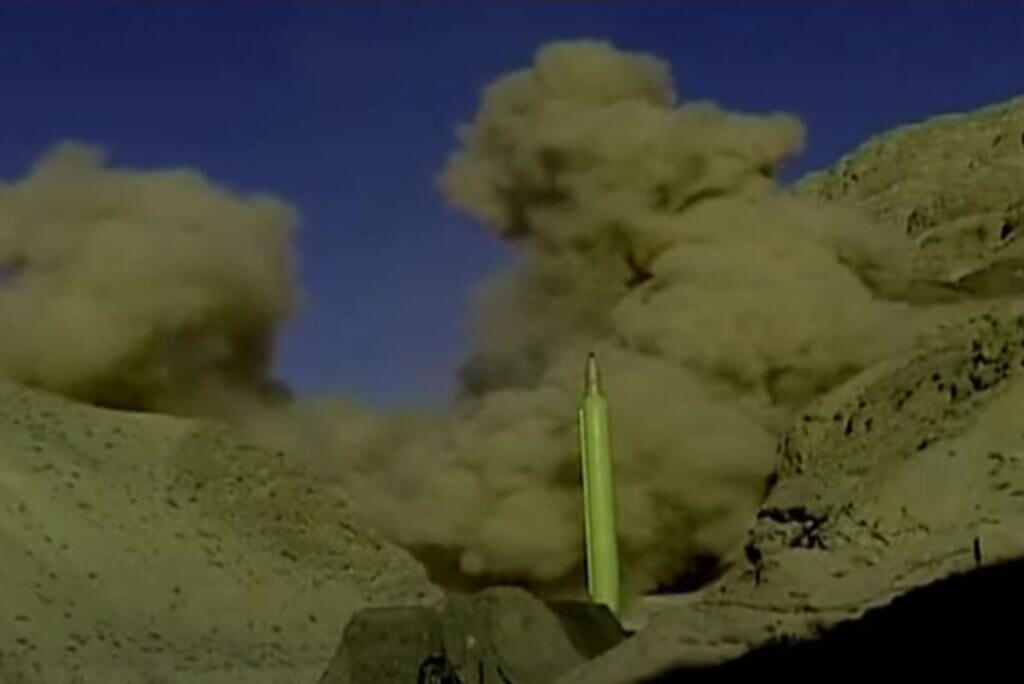Israel and the world are wondering what President Trump is planning during next week’s Middle East visit. Will he call for the U.S. Embassy to be moved? Might he present a peace plan?
Previous plans have called on Israel to turn over land gained in the 1967 Six-Day War in exchange for peace. That’s unacceptable for those who believe God gave the land of Israel to the Jewish people as part of its divine inheritance.
Much of the world calls the playgrounds these children enjoy obstacles to peace. That’s because they’re in Judea and Samaria—otherwise known as the West Bank.
“Are we witnessing prophecy unfolding right now after the 1967 War?” CBN News Middle East Bureau Chief Chris Mitchell asked Shiloh’s former mayor David Rubin.
“Absolutely,” he responded, remembering Zechariah’s prophetic words about Jerusalem’s future.
“The plazas of the city will be filled with young boys and girls playing in her open places” (Zech. 8:5).
“It says that the sounds of children playing in the streets will be heard once again in Israel. You hear it, you see it,” he said.
Where the Patriarchs Walked
We spoke with Rubin in Shiloh overlooking the Road of the Patriarchs—the highway Abraham, Isaac and Jacob would have traveled on.
Does he see the 1967 war as a pivot—a prophetic pivot in time and history?
Rubin said he does because the war opened the door for the Jewish people to redeem the biblical heartland after 2,000 years in exile.
Places like Jerusalem, home of two consecutive Jewish Temples; Bethlehem, the birthplace of Jesus; Hebron, where Abraham, Isaac, Jacob and their wives are buried; and Shiloh, where the Tabernacle stood for 369 years, all came back into Israeli hands.
That coming together again as a nation is a fulfillment of the “dry bones being put back together again,” Rubin said, quoting the prophet Ezekiel.
“…If we don’t have a right to Shiloh, if we don’t have a right to Shechem [today called Nablus] and we don’t have a right to Bethel [house of God] and Jericho, we definitely don’t have a right to Tel Aviv,” he said.
But not everyone at that time saw the opportunity. It took until 1978 for Shiloh to be established just above the site where the Tabernacle had rested.
“There were Israelis who were coming there trying to set up tents on—on, you know, the lower hill of Shiloh, and the Israeli prime minister, who was looking over his shoulder at the American president, kept sending in the army to chase them away,” Rubin explained.
‘First’ Community in Judea
Just months after the Six-Day War, Israelis established the first Jewish community in Judea about 35 miles south of Shiloh at Kfar Etzion. Jews lived there before Israel’s Independence Day War in 1948 and were either evacuated or massacred by the Jordanians.
Rabbi Eliezer Waldman was one of those who helped establish the modern Jewish community in ancient Hebron.
“When this group of orphans, of those who were murdered, notified the Israeli government—notified our government—that if you don’t give us the permit, we will go on without a permit, the government really couldn’t stand up against orphans of those who were murdered,” he said. “Kfar Etzion [was] established.”
“And we know there was always a Jewish community in Hebron even during 2,000 years of exile until 1929, when the Arabs massacred the Jewish community here,” he continued.
A small group of families rented a hotel in Hebron for the Passover Seder. Essentially, they never left.
“And I believe then almost all the population of Israel was with us,” he said. “Even more than half a year after the Six-Day War, the spirits were high among the entire population.
Media Quotes Biblical Prophecies
In the days and weeks following the war, the media quoted verses from the prophets in their reports, he said.
“I even remember headlines, “Pehsukim merehifim b’avir,” passages of the prophets are hovering in the air because things have come to be as the prophets said they would,” the rabbi said.
Fifty years later, some 430,000 Israelis live in more than 200 communities in Judea and Samaria. That number jumps to 750,000 when neighborhoods in eastern Jerusalem are included.
“The growth here has been so tremendous and as we’ve gotten through those 50 years after the Six-Day War and we’re looking to the future, so we have this vision of booming Shiloh once again,” Rubin said.
Mitchell asked what he thought Shiloh would have looked like 50 years ago.
“Barren desert,” said Rubin. “There was nothing, there was nothing here. It was just hills of weeds and thorns.”
Rubin showed us a road under construction, which will lead to a new school for the growing population. There are 8,000 residents in the Shiloh Township, more than 2,000 of them children who study in Shiloh.
“We learn that when Israel is not in the land that the land lays barren. The land doesn’t give its fruit,” Rubin continued. “And now the land of Israel is giving of its fruit because Israel is back … and the most important fruit is what you see right here—all of these children.” {eoa}
Copyright The Christian Broadcasting Network, Inc., All rights reserved.
See an error in this article?
To contact us or to submit an article























